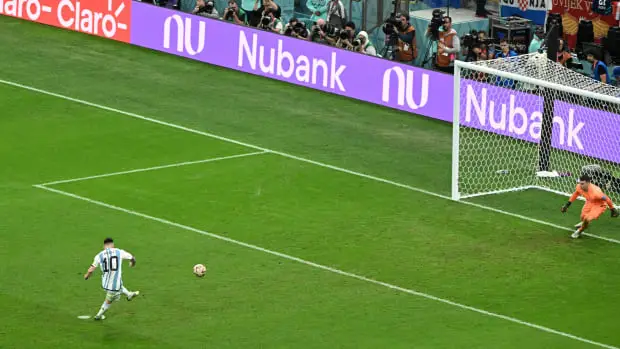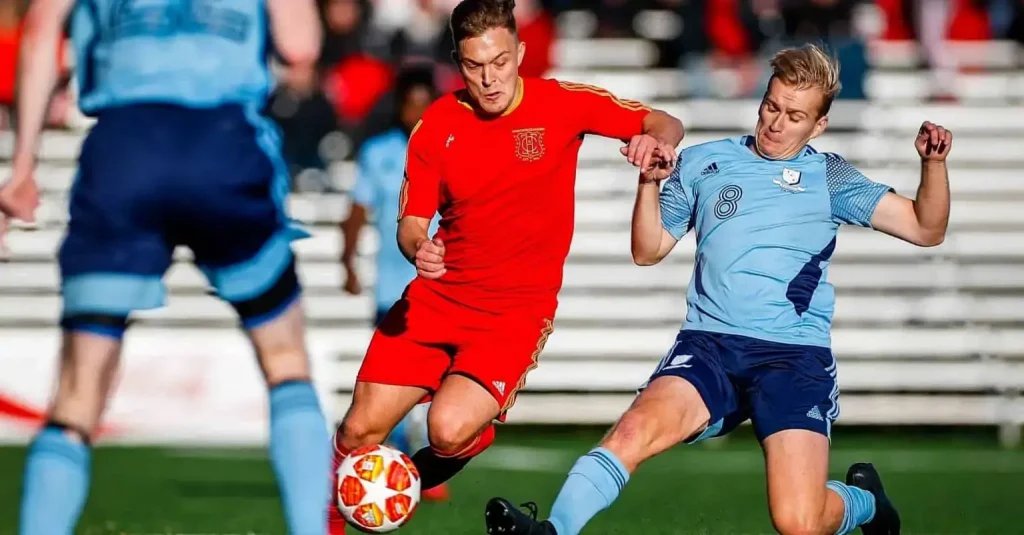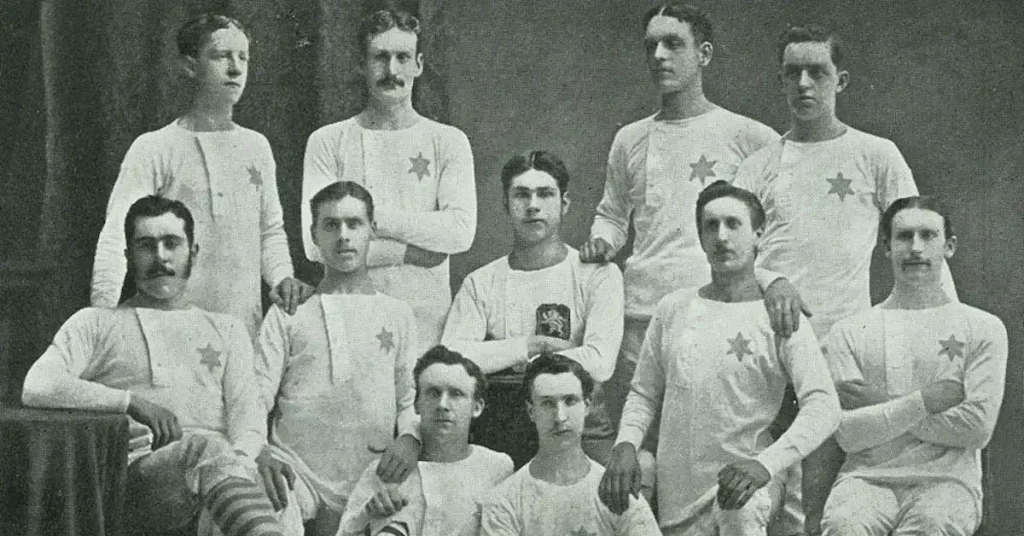Sudden death! It’s a scary phrase, particularly when exclaimed without context.
You may assume within the connotations of soccer, sudden death has a far less fright-inducing meaning in comparison to a grim reminder of our mortality.
However, it is comfortably among the most terrifying scenarios to soccer fans, players and managers alike.
Only used in knockout tournaments where a winner must be decided, Sudden Death is the finite method of separating two sides.
Triggered if both sides have remained level after 120 minutes and 5 penalties, sudden death ensures a winner is found as penalties are taken until one team can convert without the other managing to.
It is the manifestation of truly agonising anticipation of both a crushing defeat and joyous exaltation.
The two outcomes hang on a knife’s edge, with the players who did not volunteer for the shoot-out forced to step up until someone inevitably wins/ loses it for their team.
It is a harrowing way to lose, but makes for the most dramatic of finales, despite its simplicity.
Why Are Games Decided Like This?
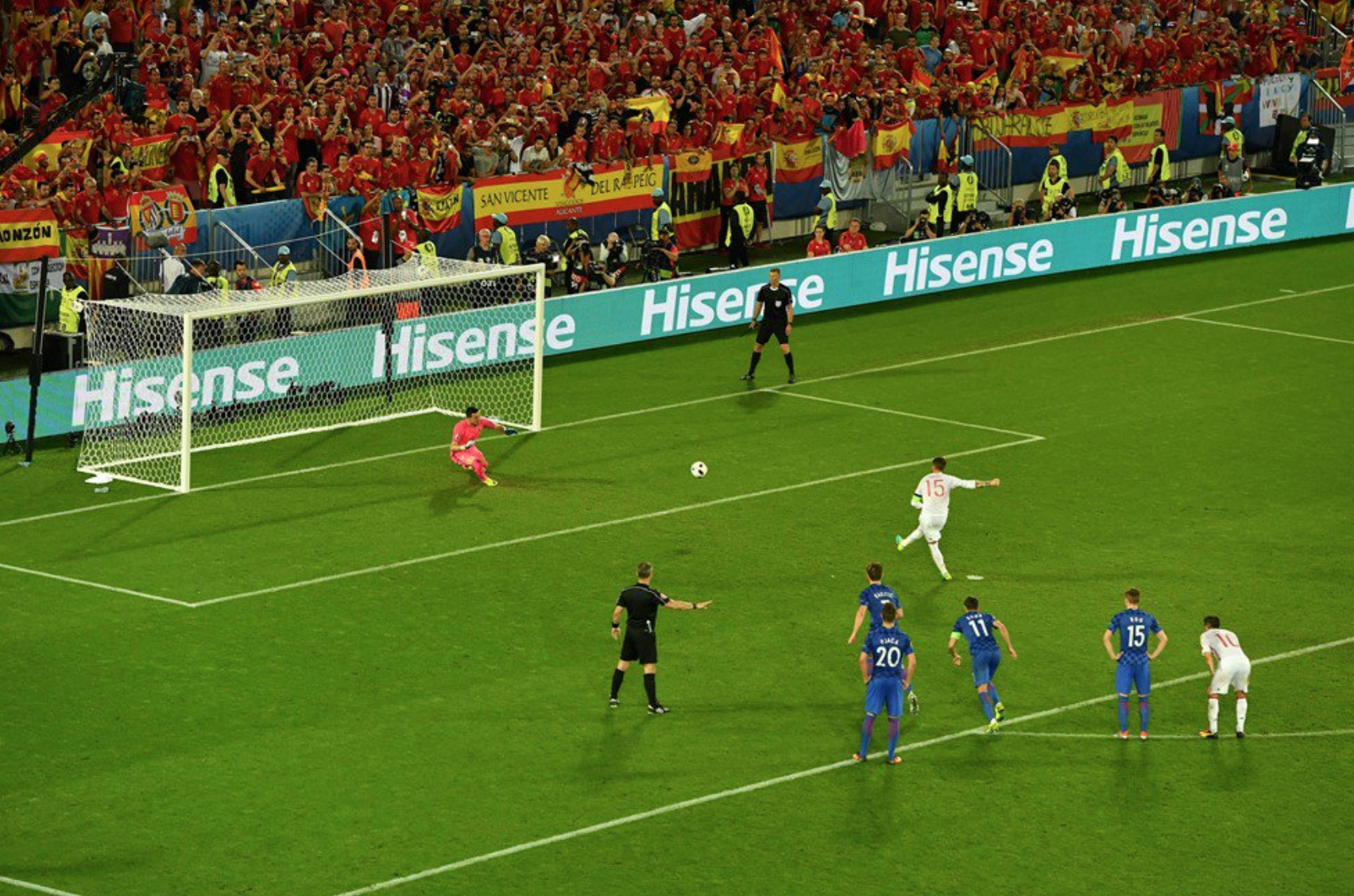
Stats may suggest otherwise, but as far as the score goes, there is nothing to separate the two sides.
At this point penalties are the fairest way to conclude a match.
Play can only go on for so long until players’ health is placed at risk, so the physical battle is traded for the mentally exhausting penalty shoot-out.
Penalties are as fair as they are unfair.
There is an element of luck and guesswork, but mentality, tactics, composure and most importantly, penalty taking prowess all make for a finale with just as much drama and nuances as regular play.
Sudden death ensures a winner is decided, and will continue as long as required.
When sudden death is entered the end of the match is imminent. Yet at the same time, the conclusion is an infinite amount of time away.
It’s Schrödinger’s shoot-out.
The end is in theory just one missed penalty away, but this won’t come unless one of the teams is able to score when the other can’t.
When the shoot-out is level, the next round of penalty’s after the 5th is both the deciding round and the round that starts off an endless loop of anxiety.
A purgatory where both teams match the other, as both victory and defeat is just a split second away.
Of course the shoot-out always does end, human error or a brilliant save eventually occurs, particularly as the lesser penalty takers are forced to take one. But sudden death can go on for agonisingly long.
In penalty shootouts a taker cannot take more than one penalty, unless every player, including the goalkeeper has taken one.
Only through sudden death going more than 6 additional rounds on top of the first 5, will a player take a second penalty.
It’s rare sudden death wraps around to the first choice takers, with sudden death seldom going further than 3 or 4 extra rounds. But, some shoot-outs go the distance and beyond, with even the goalkeepers stepping up.
What Is The Longest Sudden Death Has Gone On For?
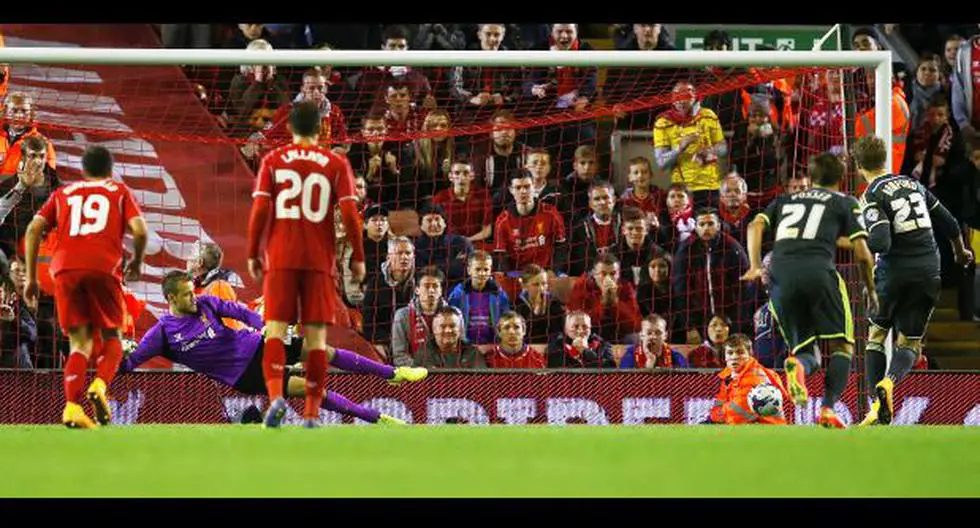
It’s rare enough for goalkeepers to have to take one
But, in recent years some shootouts have reached seismic levels of tension, extending far beyond the predictions of any sane person.
In Messi and Inter Miami’s Leagues Cup victory, sudden death was a necessity to separate Nashville and Miami. After Ulloa missed what would have been a deciding 5th penalty, leaving the score 4-4, the shootout went to sudden death.
After a long, gruelling, 5 more rounds of converted penalty’s, neither side missing one, it was up to the goalkeepers to face off against one another.
The Nashville keeper, aptly named Panicco, saw his effort saved by Callender in the Miami net, which left Callender to finally decide the game, scoring past his opposite ending.
Watching it live was heart stopping, even as a neutral, but one shoot-out lives on as a record-breaker in English football, taking sudden death to new heights.
In the 2nd round of the 2014 edition of the Carabao Cup (Aka League Cup), Liverpool faced Middlesbrough in a historic match that saw 30 penalties taken overall before a winner could be decided.
Both teams were in great form, as only 3 penalties were missed, two of those were missed within the regular first 5 takers. In fact, the final penalty was also missed by one of the chosen first 5 takers.
With a score of 14-13, Liverpool after endless anticipation bested Middlesbrough, as Albert Adomah missed to send Liverpool through.
Adomah had actually lost track of which side were taking their penalties second, as they all blurred into one.
He would only realise he’d lost the shootout after turning around and seeing the Liverpool players charging forward in celebration.
It is the joint most penalties taken to decide a shoot-out in English history.
But the longest shoot-out of all time took place in Namibia, in the Namibian Cup Final.
KK Palace triumphed after a shootout consisting of 48 spot kicks, the score 17-16 on penalties.
